2019 has been an odd year. It's somehow felt like nothing happened and absolutely everything happened, both at the same time. In my personal life, I've met some great people this year, and I've also started thinking more seriously about what type of career I want to pursue, but if someone had asked me casually about what I've done this year, I don't know that I would've been able to point to anything outside of carrying on my daily life. In the realm of games, there was still a constant flow of rumors and news, and there's been some absolutely amazing releases this year, as tends to be the case every year, but so many of the tent-pole annual happenings that usually populate the year ended up falling short. E3 was in a weird, uneventful place this year, and I'm honestly not sure if that reflects more on the year or on E3. On top of it, a lot of the major annual franchises from publishers like Ubisoft and 2K were either absent, or just not very interesting.
Whether or not both of these are simply because of the upcoming console generation remains to be seen, I suppose. But in a year where some of the most prominent publishers felt like they were laying low, some of the biggest surprises came from new IPs, or from entirely new teams. Below I've written some thoughts on some such surprises (and some not quite surprises) among the games that I played this year. Despite this list being titled "GOTY 2019", there's not necessarily an order to most of this list, in part because I just couldn't decide where some of these games should place.
Crossniq+
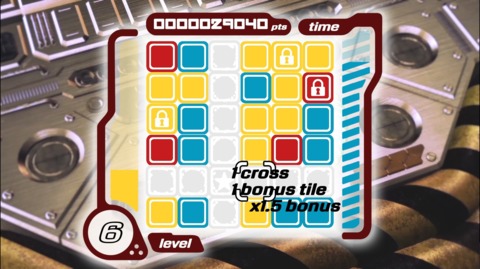
Crossniq+ is a puzzle game about sliding pieces around on a board to create a cross/+. Crossniq+ is also an homage to the “Y2K” aesthetic, with plenty of chrome, rounded edges, and bright primary colors. I don't really have much to say about this game, because it's a fairly simple game from concept to execution, and I think that simplicity is part of why it's so appealing to me. The puzzle mechanics are interesting, throwing just enough curve balls to keep the player on their toes and break up the repetition, without ever getting terribly overwhelming, and the visual design is brimming with charm, with menus that feel straight out of the dreamcast era, and a cute cast of characters to choose from in the Versus mode. For as simple as Crossniq+ is, it does what it sets out to do, and the end result is a great time-killer.
Baba is You
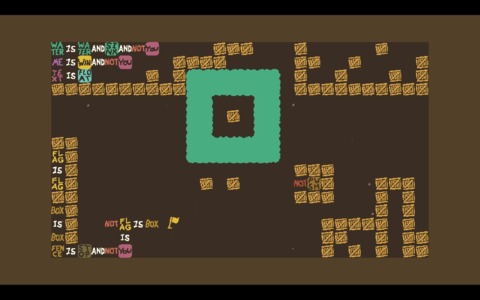
Baba is You is a game that I have a lot of respect for. It presents a complex system of rules, allows the player to modify almost all of them, and handles the resulting situations in a consistent manner. Each level gives just enough clues to help the player figure out what it wants them to know about the main ruleset without directly telling them how anything works. While this approach is undoubtedly clever, and can make finally solving a puzzle feel great, I think it starts to mire the game a bit, as it goes on. It works really well in the beginning of the game, encouraging the player to experiment, and allowing them to figure things out on their own. However, as I neared the end of the game, this vagueness would sometimes feel more cryptic than it did clever, and some levels left me feeling directionless, unsure of where to even begin. Whether that reflects more on the game or on me, who’s to say, but Baba is You’s determination to having the player solve things on their own is as commendable to me as it is kinda frustrating.
Kingdom Hearts III
Kingdom Hearts III is complicated. When a game tries to be a definitive ending to a story that’s been building for at least 10 games now, how can it not be? I didn’t expect to walk away amazed, feeling as though every piece of Kingdom Hearts had finally fallen into place, but even while tempering my expectations, I walked away feeling conflicted. This game is the culmination of every experiment, idea, and minor tweak that Square Enix has tried out on this series since KH2, and there's definitely a lot of improvement present. Combat, while still pretty simple, has a variety of inherited features such as shotlocks and situation commands, which do help to add some variety. As well, the mini-plots of the Disney-themed worlds actually felt like they played some role in the grander non-Disney narrative, unlike the previous games, which always felt to me like a whole lot of Kingdom Hearts on either end, with a five-hour Disney intermission in-between. While these improvements don't form some grand revelation, they should easily put KH3 among the best games in the series, right?
For a while, it honestly seemed to me like Kingdom Hearts III could find itself in such company, as long as it could do a decent job of sticking the landing. However, in the third act, when it's time to stick the landing, KH3 stumbles more than it soars. Almost everything that was being built up to, both in this game, and in the series at large, gets resolved within the span of one 3-4 hour segment. Some of the pay-offs to these narrative threads are genuinely great moments, but a majority of these resolutions feel like they could have been amazing pay-offs that instead fall short, and get lost among other moments that should have been fulfilling conclusions, but fell just shy. Does this hasty resolution detract from the rest of the game? Not necessarily, but it did leave me wishing Kingdom Hearts III was a bit better, even if I wouldn't call it a bad game.
The Outer Worlds

From the initial trailers, I wasn’t quite sure about The Outer Worlds. Nothing about it necessarily looked bad, but the snippets that were shown felt a bit generic and directionless to me. At first, I wasn't sure if I was going to bother with it at all, but when it showed up on Game Pass, I eventually decided it was a good enough opportunity that I may as well give it a shot. I booted it up around noon on launch-day, expecting to play a couple of hours before moving on, which made it all the more strange when I looked up from the game and realized it was already dark outside. Somehow, I had sat down and made it all the way to the Groundbreaker without even noticing how much time had passed.
This pace slowed down a little as I got further into the game, when the frequency of combat encounters and a general lull in the plot started to gradually drain my enthusiasm. But even as the main plot got a bit long in the tooth, I still found myself drawn to the characters that comprised my crew, and the world the game took place in. The cast play excellently off of one another, as well as their environment, giving them a level of wisdom about their surroundings that made the world really come to life for me. I don’t know that I would call The Outer Worlds a substantial experience with plenty on its mind, but its willingness to make fun of capitalism, as well as its great cast of companions, were enough for me.
Noita
When done well, physics systems in games can be almost entrancing. Cascades of falling sand, the chaotic yet steady spread of fire, water rushing to meet an enclosure, when a game nails things like these, I’ve often found myself sitting back and just watching it all unfold. Noita caught my eye because it’s a game built around such moments. There’s a wide variety of materials in the game, some of which can be set on fire, some of which explode, some of which do any number of unpredictable things. As things burn, support beams will fall to the ground, enemies will get coated in oil and catch alight, and smoke will billow up to sky. The player, a wizard placed in front of a cave full of such materials, is set loose to venture, razing as much or as little as they see fit.
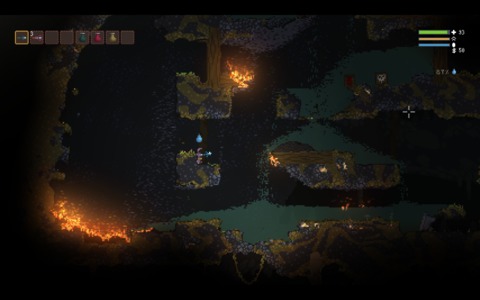
As I started to assume that these physics interactions were the main thing Noita had going for it, I started ignoring the cave that I began in front of, instead seeing if there was anything beyond it, in the opposite direction from it, or in any other direction I could think to go. Each time I ventured out, I was greeted by something that I had never seen before, whether it was a vast desert landscape, a mysterious orb and a cryptic note, or any number of thing. This exploration also brought with it a sense of fear, since the only way to regain health is found in the cave, meaning that if I went too far out, I might not be able to make it back. While this could feel like a roadblock to the discovery process, it also made it way more intense, as every extra minute I spent testing the waters was another minute spent in dangerous territory, never quite sure what would come for me next. It's that ability to keep the tension up, even in moments of relative safety, that I think really sets Noita apart from other rogue-likes.
Apex Legends
I didn’t feel very confident going into Apex Legends. It seemed like every time I tried out a battle royale, it would follow the same pattern. The first 95% of every match would see me running around quietly collecting items, the last 5% would see me unceremoniously killed in a matter of seconds, and I would eventually give up and walk away, seeing the appeal but feeling severely outclassed and having little to show for my time. Which is why I was genuinely a little surprised when I found myself prepared for — and in the middle of — a firefight, roughly 4 minutes into my first match. That surprise grew when, not only did my squad survive said encounter, but we managed to finish the match in 5th place.
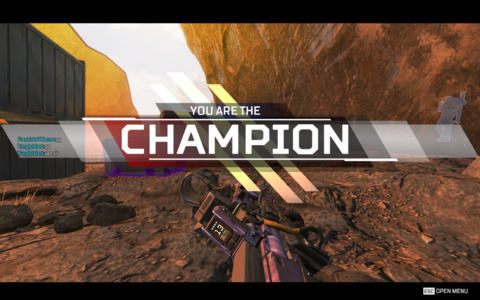
Somehow, Apex fixes everything that hadn’t quite worked for me about other battle royales. Gearing up at the beginning of every round is quick and painless, and the map design forces players to converge at a rate that feels frequent, but not overwhelming. When encounters happen, they’re still fast-paced, but the abilities system, terrain, and overall weapon balance give most fights enough room to feel manageable. To top it all off, the ping-system, while a fairly simple concept, is the first time I’ve personally seen an effective replacement for voice chat in a competitive game. As someone who doesn’t cherish the thought of talking directly to random strangers, it’s a really nice feature to have. Does Apex Legends reinvent the genre? No, not necessarily, but the improvements it brings to the table definitely add up.
Control
I absolutely love the environmental design in Control. This is hardly a controversial take, I know, but something about the way it blends American corporate minimalism with jagged brutalism just instantly clicked with me. From a story perspective, the contrast between the two is fitting for “secret agency overrun by supernatural entities”, and the visuals created by the hiss zones’ vivid shades of red, contrasted with the marble and onyx tones of the Bureau, are striking every single time. Even when it comes to camera angles and shot design, Control feels like one of the biggest risk-takers of this year, with some shots that forego an environment entirely, putting the focus squarely upon a single figure, and semi-tutorials in the form of live-action videos reminiscent of old science edutainment vhs tapes. While the end result can be a little hard to follow at times, I adore the hell out of just about everything Control tries.
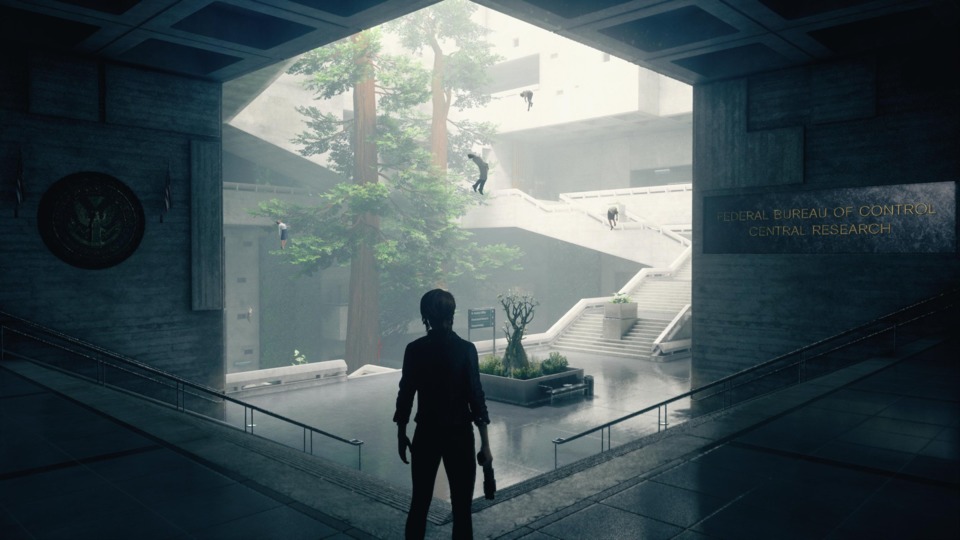
Hypnospace Outlaw
Hypnospace Outlaw may seem like a bit of an odd inclusion on this list for someone such as myself, who never actually got involved in the late ‘90s/early ‘00s internet. Sure, I’ll admit, I don’t really have the same nostalgic draw for this game that others who played it might. Despite this, the faux-internet society of Hypnospace drew me in almost immediately. The writing in this game manages to be hilariously absurd one moment, and genuinely heartfelt the next, sometimes even on the same page. I would often find myself foregoing whatever quest was at hand, just to take some time and explore the pages that were available.

The world feels like it was designed with its own existence in mind, and users feel like they actually influence one another, rather than just being individual plotlines that exist in the same space. I don’t think it’s an exaggeration to say that Hypnospace has some of the most compelling character arcs from this year, and even some characters who seemed like they were designed solely for a one-off joke get decent storylines, away from the spotlight. In it's final chapter, Hypnospace takes a turn which leaves the narrative honestly tragic, in a way I didn't see coming, and in a time when so much of the internet feels like it revolves around telling cheap, irony poisoned jokes, I think that's what really sets this game apart. Deep down, Hypnospace Outlaw has some honest heart to it, and it knows when to let that take over.
Outer Wilds
I’ve got a confession to make. I only actually started playing Outer Wilds a few days ago. However, it’s been at the back of my mind ever since. Even when I’m not playing it, I’ve found myself thinking about the things I’ve encountered so far, and where they could be leading. Whether it’s thinking about where I want to go next when I return, realizing something about a planet I’ve been to, or even just remembering how last night I managed to fall into the black hole a third time, this game left me with plenty of things to think about every time I picked it up.
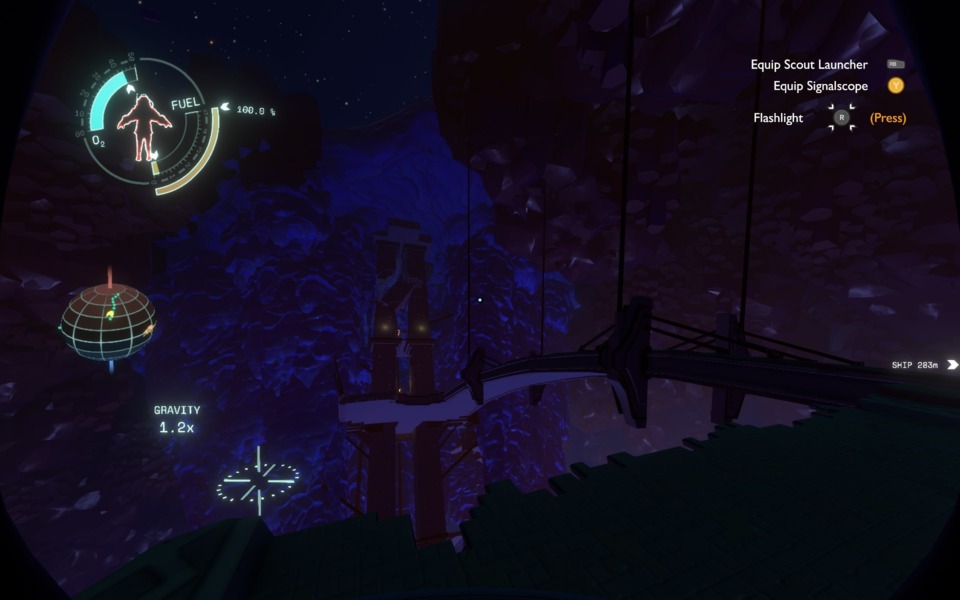
This is no doubt aided by the fact that there’s always something to work towards in this game. When the player discovers anything that suggests a mystery, it gets recorded into the ship’s log. This means that there’s always a thread to follow, and those threads unlock carry on while also unlocking other threads to follow. For me, it almost manages to bring the whole “one more turn” mentality of strategy games into an exploration game, leaving gives Outer Wilds with an enthralling quality well beyond any other game this year. I can’t wait to get back to it.
Game of the Year
Shovel Knight: King of Cards
It feels like every time a new Shovel Knight campaign comes out, it impresses me more than the last. King of Cards is no different. Everything about this campaign is ridiculously polished, from the pixel art, which has gotten more detailed and expressive without straying from the overall style, to the level design, which, while built in bite-size chunks this time around, is still as great as ever. King Knight’s moveset just works right off the bat, and the specific limitations of when King Knight can attack downwards are easy to grasp, while still allowing for some really clever puzzles.
On top of already being a phenomenal campaign of its own right, King of Cards introduces Joustus, a fully fledged card game, as a secondary gimmick. I was unsure how much I would care for Joustus, since side-games like this normally don’t do much for me, and at first it did seem like a fairly simple, uninvolved game. However, the different abilities it gives access to over time really puts Joustus over the edge, opening up a variety of strategies, and really making the game interesting. Combine this with a variety of opponents, each with their own deck themes and strategies, and Joustus is truly something special, to the point that I think I may have ended up playing just as much Joustus as I did the regular platforming levels.
King of Cards is one hell of a send-off to one hell of a series, and I can’t wait to see what Yacht Club Games makes next.
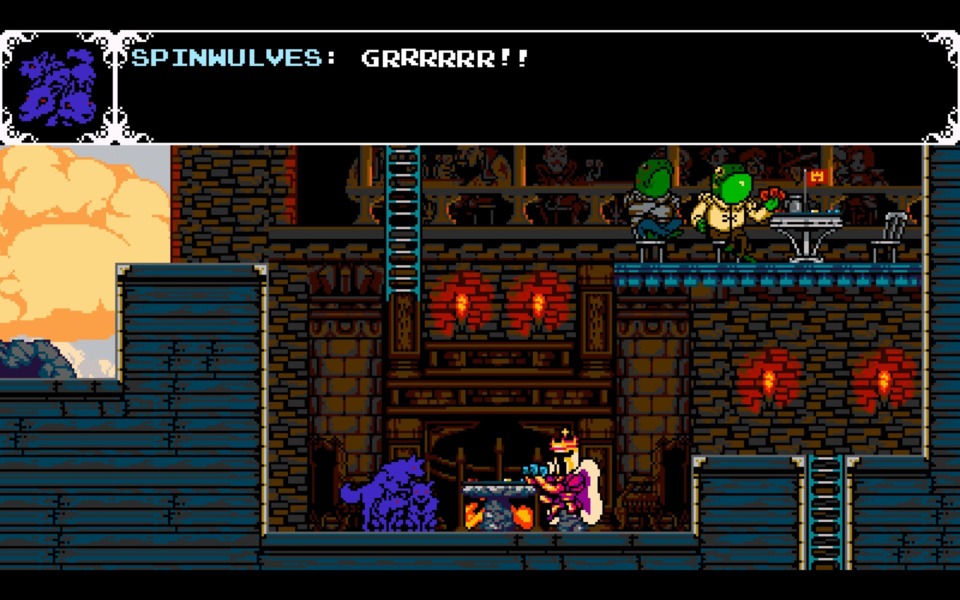
Log in to comment